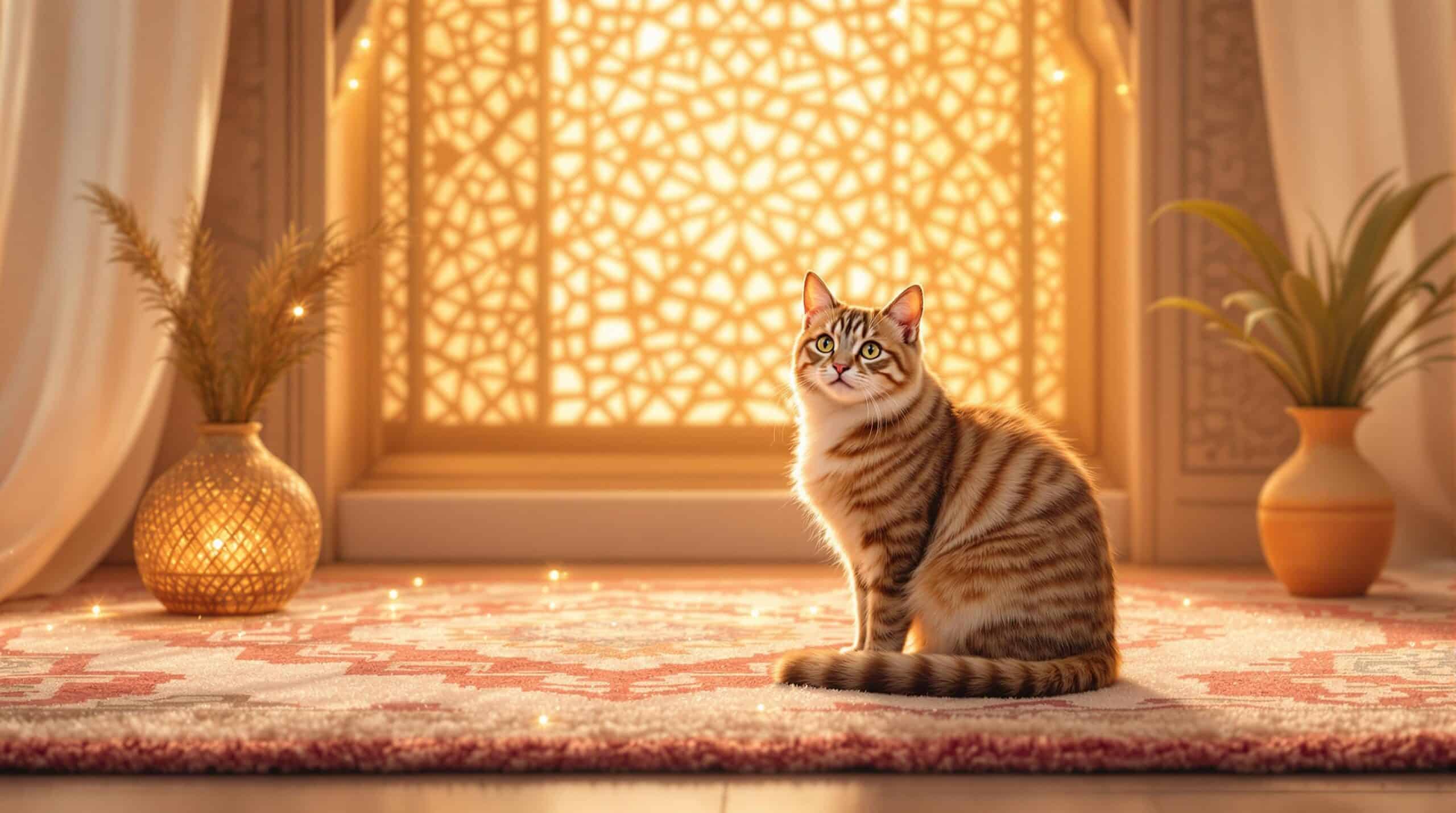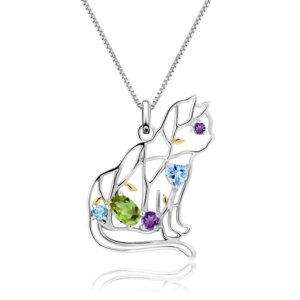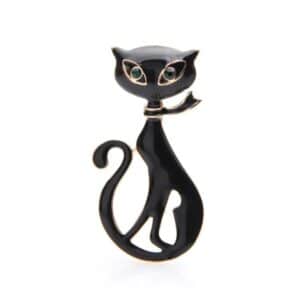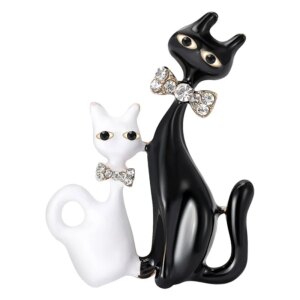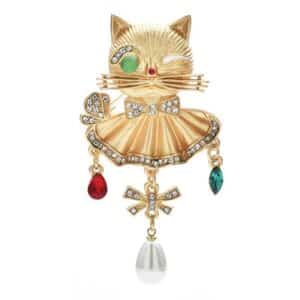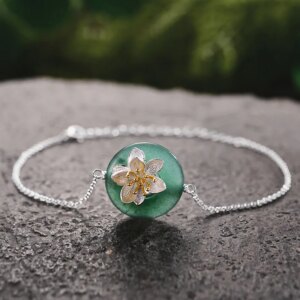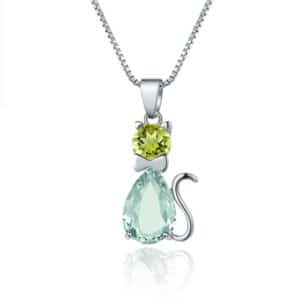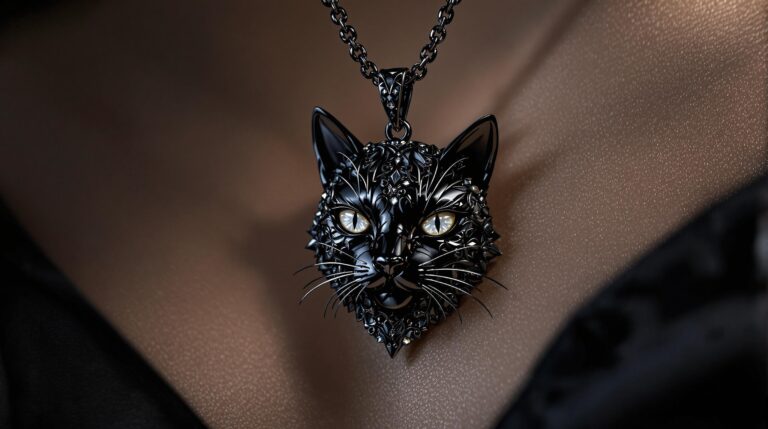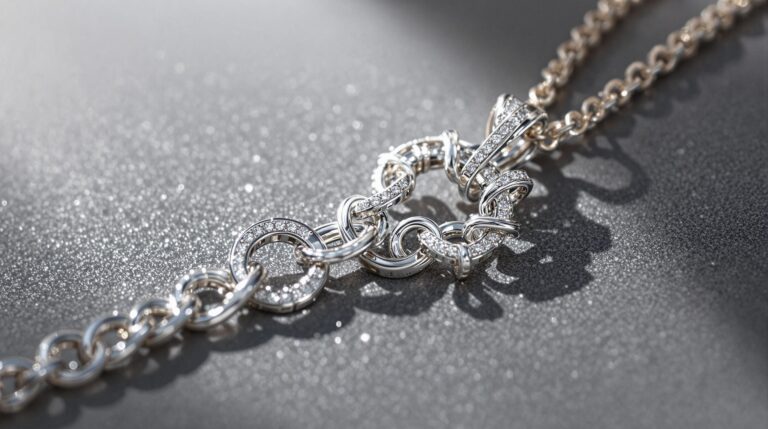Cats in Islam have a special place in Islamic culture and tradition. We at Cat Karma Creations explore the Islamic view on cats, their role in Muslim households, and the teachings that guide their care and treatment. Discover the rich history and symbolism of cats in Islam, and learn how to create a welcoming and compassionate environment for these beloved animals. For more unique cat-themed gifts and jewelry, visit our website.
The Islamic View on Cats
Religious Significance
Cats in Islam are considered clean and are allowed in homes. This is a significant distinction from other animals, such as dogs, which are generally considered impure. The Quran does not mention cats directly, but the Hadiths (sayings and actions of the Prophet Muhammad) provide numerous examples of the Prophet’s kindness and respect towards cats. This sets a clear precedent for Muslims to treat cats with care and compassion.
The Islamic view on cats emphasizes their cleanliness and suitability as pets. We encourage Muslims to keep cats as a source of companionship and comfort, reflecting the broader Islamic value of kindness towards all animals. This perspective is deeply rooted in the teachings of Islam, which promote the ethical treatment of all living beings.
Cultural Role
Cats in Islamic culture are common pets and are often depicted in art and literature. They are seen as symbols of grace, companionship, and purity. In many Muslim households, cats are treated as family members, providing comfort and joy to their human companions. The presence of cats in Islamic homes reflects the deep respect and affection Muslims have for these animals.
The cultural role of cats in Islamic societies extends beyond their presence in homes. They are frequently featured in Islamic art, from medieval manuscripts to modern illustrations. Cats are also prominent in Islamic literature, where they are often portrayed as wise and noble creatures. This cultural significance underscores the importance of cats in the daily lives of Muslims.
Ethical Treatment
The ethical treatment of cats in Islam is guided by the principles of kindness, compassion, and respect. We encourage Muslims to provide a clean and safe environment for their cats, ensuring they are well-fed and cared for. The Prophet Muhammad’s interactions with cats, as recorded in Hadiths, set a precedent for the humane treatment of animals in Islamic societies. These teachings emphasize the importance of treating all creatures with kindness and respect.
Islamic teachings on animals, including cats, emphasize the responsibility of humans to care for and protect them. This includes providing proper nutrition, regular veterinary care, and a loving home. We also encourage Muslims to avoid mistreating or neglecting animals, recognizing that the treatment of animals is a reflection of one’s faith and character.
Prophet Muhammad and Cats
Kindness and Compassion
The Prophet Muhammad’s interactions with cats are well-documented in Hadiths, which provide numerous examples of his kindness and compassion towards these animals. One famous Hadith describes how the Prophet once cut off the sleeve of his robe to avoid disturbing a cat that was sleeping on it. This act of consideration demonstrates the high regard the Prophet had for the well-being of animals.
The Prophet’s kindness towards cats serves as a model for Muslims, encouraging them to treat all animals with the same level of care and respect. His actions highlight the importance of compassion and empathy in Islamic teachings, which are central to the ethical treatment of animals.
Hadiths About Cats
Several Hadiths provide insights into the Islamic perspective on cats and the treatment of animals. One Hadith states that a woman was punished for locking a cat in a box without food or water, while another Hadith praises a woman who provided water to a thirsty cat. These Hadiths underscore the importance of treating animals with kindness and ensuring their well-being.
Another Hadith mentions that the Prophet Muhammad once said, ‘A man went to paradise because he gave water to a cat that was thirsty.’ This Hadith emphasizes the significance of small acts of kindness and the positive impact they can have on one’s spiritual journey. These teachings encourage Muslims to be mindful of their actions and to show compassion to all living beings.
Historical Examples
Throughout Islamic history, cats have played a significant role in the lives of Muslims. From the early days of Islam to the present, cats have been companions of many notable figures, including scholars, poets, and rulers. The presence of cats in Islamic societies reflects a deep respect for these animals and their contributions to daily life.
One historical example is the story of Umar ibn al-Khattab, the second caliph of Islam, who was known for his love of cats. He often kept cats in his home and encouraged others to do the same. This example demonstrates how the values of kindness and compassion towards animals have been upheld by prominent figures in Islamic history.
Cats in Islamic Art and Literature
Artistic Depictions
Cats in Islamic art are frequently depicted in various forms, from medieval manuscripts to modern illustrations. They are often portrayed as elegant and graceful creatures, symbolizing beauty and purity. In Islamic art, cats are seen as a reflection of the harmony and balance found in nature, which is a central theme in Islamic aesthetics.
One notable example is the depiction of cats in the illuminated manuscripts of the Quran. These manuscripts often feature intricate designs and illustrations, with cats appearing alongside other animals and natural elements. The inclusion of cats in these works of art highlights their significance in Islamic visual culture and their role as symbols of grace and beauty.
Literary References
Cats in Islamic literature are a common subject, appearing in poetry, prose, and religious texts. Many Islamic poets have written about the beauty and wisdom of cats, using them as metaphors for various themes such as love, spirituality, and the interconnectedness of all living beings. These literary works not only celebrate the presence of cats in Islamic culture but also convey deeper moral and spiritual messages.
One example is the poem ‘The Cat’ by the Persian poet Rumi, which describes the cat as a symbol of grace and divine presence. The poem reflects the Islamic belief that all creatures are part of God’s creation and should be treated with respect and compassion. This literary tradition emphasizes the importance of cats in Islamic culture and their role as sources of inspiration and wisdom.
Symbolic Meanings
Cats in Islamic culture are rich in symbolic meaning, representing various qualities such as grace, companionship, and purity. In Islamic art and literature, cats are often depicted as symbols of divine beauty and spiritual purity. They are seen as reflections of the harmony and balance found in nature, which is a central theme in Islamic aesthetics.
The symbolic significance of cats in Islamic culture extends to their role in daily life. Cats are often kept as pets in Muslim households, providing comfort and companionship to their human companions. The presence of cats in Islamic homes reflects the deep respect and affection Muslims have for these animals and their contributions to daily life.
Practical Tips for Keeping Cats in Muslim Homes
Hygiene and Cleanliness
Maintaining a clean and hygienic environment is essential for the well-being of cats in Muslim homes. Cats are considered clean animals in Islam, and we encourage Muslims to provide a clean and safe space for their feline companions. This includes regular cleaning of their living areas, litter boxes, and feeding areas to ensure a healthy environment.
Islamic teachings emphasize the importance of cleanliness, which is reflected in the care and treatment of cats. We encourage Muslims to wash their hands before and after handling their cats and to keep their homes clean and free from dirt and debris. This helps to maintain a healthy and harmonious environment for both humans and animals.
Feeding and Nutrition
Providing a balanced and nutritious diet is crucial for the health and well-being of cats in Muslim homes. We encourage Muslims to feed their cats high-quality food that meets their nutritional needs. This includes a variety of proteins, vitamins, and minerals that support their overall health and well-being.
Islamic teachings on animals emphasize the importance of providing proper nutrition and care. We encourage Muslims to avoid feeding their cats harmful or unhealthy foods and to consult with veterinarians for guidance on the best diet for their feline companions. This helps to ensure that cats are well-nourished and thrive in their homes.
General Care and Well-being
General care and well-being are essential aspects of keeping cats in Muslim homes. We encourage Muslims to provide a safe and comfortable environment for their cats, including access to clean water, appropriate shelter, and regular veterinary care. This includes regular check-ups, vaccinations, and treatment for any health issues that may arise.
Islamic teachings on animals emphasize the importance of compassion and respect in the care and treatment of all creatures. We encourage Muslims to treat their cats with kindness and to provide a loving and supportive environment. This includes spending time with their cats, playing with them, and showing them affection. By creating a harmonious and compassionate environment, Muslims can ensure the well-being of their feline companions and strengthen the bond between humans and animals.
Popular Quote
“The compassion of a man for all living creatures is the most noble attribute of man.” – Imam Ali ibn Abi Talib
Statistical Fact
According to a study by the Islamic Research and Training Institute, over 80% of Muslim households in the Middle East and North Africa keep cats as pets. This statistic highlights the deep cultural and religious significance of cats in Islamic societies. (Source: Islamic Research and Training Institute, 2021)
Three Tips for Keeping Cats in Muslim Homes
- Provide a Clean Environment: Ensure that your home is clean and free from dirt and debris. Regularly clean your cat’s living areas, litter boxes, and feeding areas to maintain a healthy environment.
- Feed a Balanced Diet: Offer your cat high-quality food that meets their nutritional needs. Consult with a veterinarian to ensure your cat is receiving the right balance of proteins, vitamins, and minerals.
- Show Compassion and Affection: Spend time with your cat, play with them, and show them affection. A loving and supportive environment is essential for their well-being and strengthens the bond between humans and animals.
Popular Questions About Cats in Islam
- Are cats considered clean in Islam? Yes, cats are considered clean in Islam and are allowed in homes. This is in contrast to dogs, which are generally considered impure.
- Can Muslims keep cats as pets? Yes, Muslims are encouraged to keep cats as pets. Cats provide companionship and comfort, reflecting the Islamic value of kindness towards animals.
- What are the ethical guidelines for treating cats in Islam? Islamic teachings emphasize the importance of kindness, compassion, and respect in the care and treatment of all animals, including cats. This includes providing a clean and safe environment, proper nutrition, and regular veterinary care.
- Are there any Hadiths about cats? Yes, there are several Hadiths that provide insights into the Islamic perspective on cats and the treatment of animals. These Hadiths emphasize the importance of treating animals with kindness and ensuring their well-being.
- What is the cultural significance of cats in Islamic art and literature? Cats are frequently depicted in Islamic art and literature, symbolizing grace, beauty, and spiritual purity. They are seen as reflections of the harmony and balance found in nature, which is a central theme in Islamic aesthetics.
Final Thoughts About Cats in Islam
Cats in Islam are more than just pets; they are symbols of grace, companionship, and purity. By understanding and respecting the Islamic teachings on cats, Muslims can create a harmonious and compassionate environment for these beloved animals. Whether you are a cat owner or simply interested in the role of cats in Islamic culture, this guide provides valuable insights and practical advice. Visit our website to find unique cat-themed gifts and jewelry that celebrate the special bond between humans and cats. For more information or to place a custom order, contact us at info@catkarmacreations.com or call us at (800) 343-1604. Follow us on Facebook and Instagram for more updates and inspiration.
| Feature | Cats in Islam | Dogs in Islam | Birds in Islam |
|---|---|---|---|
| Religious Significance | Considered clean and allowed in homes | Generally considered impure, but can be kept for protection | Symbolize freedom and spirituality |
| Cultural Role | Common pets, often depicted in art and literature | Less common as pets, but used for hunting and protection | Featured in poetry and religious stories |
| Ethical Treatment | Emphasis on kindness and care | Strict rules on handling and care | Encouraged to be treated with compassion and respect |
| Symbolic Representation | Grace, companionship, and purity | Loyalty and protection | Freedom, beauty, and divine connection |
| Historical Presence | Frequent companions of early Muslims, including the Prophet Muhammad | Used for practical purposes, but less integrated into daily life | Featured in Islamic art and literature, often associated with spiritual themes |
- Cats in Islamic homes are often seen as a source of comfort and companionship, reflecting the Islamic value of kindness towards animals.
- The Prophet Muhammad’s interactions with cats, as recorded in hadiths, set a precedent for the humane treatment of animals in Islamic societies.
- Islamic teachings emphasize the importance of cleanliness, and cats are considered clean animals, making them suitable pets for Muslim households.
- Cats are frequently depicted in Islamic art and literature, symbolizing grace, beauty, and spiritual purity.
- The presence of cats in Islamic culture reflects a deep respect for nature and the interconnectedness of all living beings.
- Islamic traditions encourage the care and protection of animals, including cats, as a form of worship and a means of earning divine favor.

